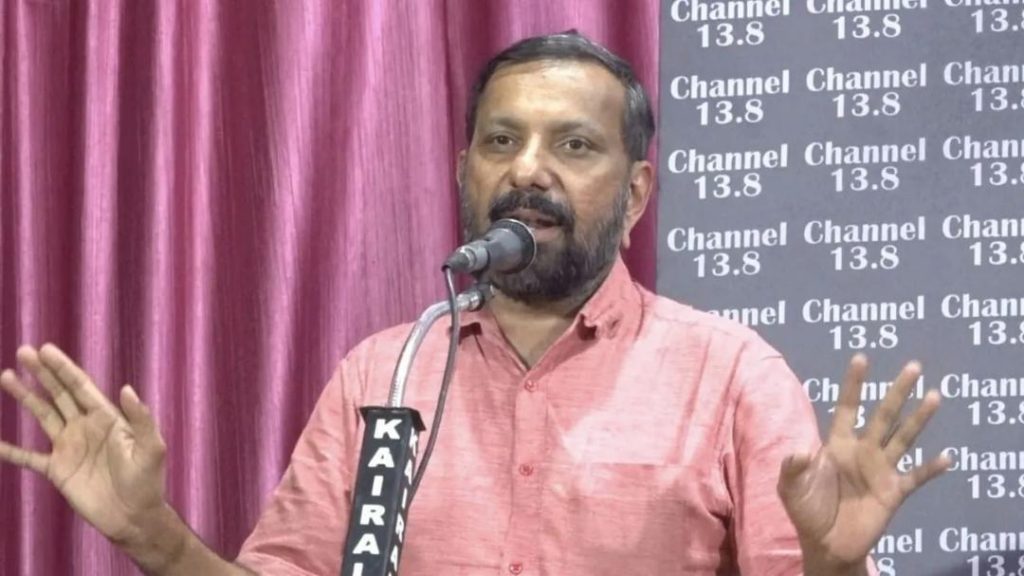
Kerala Journalist’s Midnight Arrest Draws Widespread Flak, Puts Ruling LDF on the Defensive
In a shocking incident that has sent shockwaves across the media fraternity and civil society, a Kerala journalist was arrested by the Thiruvananthapuram Cyber Police in the dead of night, sparking widespread outrage and condemnation. Shajan Skariah, a journalist with a leading Malayalam daily, was taken into custody in connection with a defamation complaint filed by a woman from Mahe, a union territory in Kerala.
The incident, which has raised serious concerns about the state of press freedom in Kerala, has drawn strong reactions from media bodies, political leaders, and civil rights groups. The Kerala Union of Working Journalists (KUWJ), the Indian Journalists’ Union (IJU), and the Press Club of India (PCI) have all condemned the arrest, terming it as “an attack on the freedom of the press” and a “blow to democratic values”.
The controversy began when Skariah wrote an article in his newspaper, which was critical of a local politician. The politician’s supporter, a woman from Mahe, filed a defamation complaint against Skariah, alleging that the article had damaged her reputation. The police, acting on the complaint, arrested Skariah at his residence in the early hours of the morning, sparking widespread outrage.
The arrest has been widely criticized for its timing and the manner in which it was carried out. Many have questioned the need for a midnight arrest, particularly when the journalist had already surrendered to the police earlier in the day. The police claim that they had to act swiftly to prevent Skariah from fleeing the country, but this explanation has been met with skepticism by many.
The opposition parties in Kerala have also jumped into the fray, with the Congress and the BJP terming the arrest as “dictatorial” and “undemocratic”. The Congress has demanded that the Chief Minister of Kerala, Pinarayi Vijayan, take immediate action to release Skariah and drop the charges against him. The BJP has accused the ruling LDF government of using the police to silence dissenting voices.
The issue has also received support from various civil rights groups, including the National Human Rights Commission (NHRC) and the Kerala Human Rights Commission (KHRC). The NHRC has sought a report from the Kerala government on the arrest, while the KHRC has demanded that the government ensure the safety and security of Skariah.
The incident has also sparked concerns about the state of press freedom in Kerala. The state has a reputation for being a hub for investigative journalism, with many prominent journalists and media outlets based there. However, the arrest of Skariah has raised questions about the government’s commitment to upholding press freedom and protecting journalists from harassment and intimidation.
The Kerala government, however, has defended the arrest, claiming that it was carried out in accordance with the law and that Skariah was given adequate notice and opportunity to surrender. The government has also sought to downplay the controversy, claiming that it is a routine case that does not warrant so much attention.
Despite the government’s efforts to downplay the issue, the controversy continues to simmer, with many demanding that Skariah be released and the charges against him dropped. The incident has also sparked a wider debate about the need for greater press freedom and protection for journalists in India.
In conclusion, the midnight arrest of Shajan Skariah has drawn widespread flak, putting the ruling LDF government in Kerala on the defensive. The incident has raised serious concerns about the state of press freedom in the state and the government’s commitment to upholding democratic values. As the controversy continues to unfold, it is clear that the government must take immediate action to address the concerns of the media fraternity and civil society.






